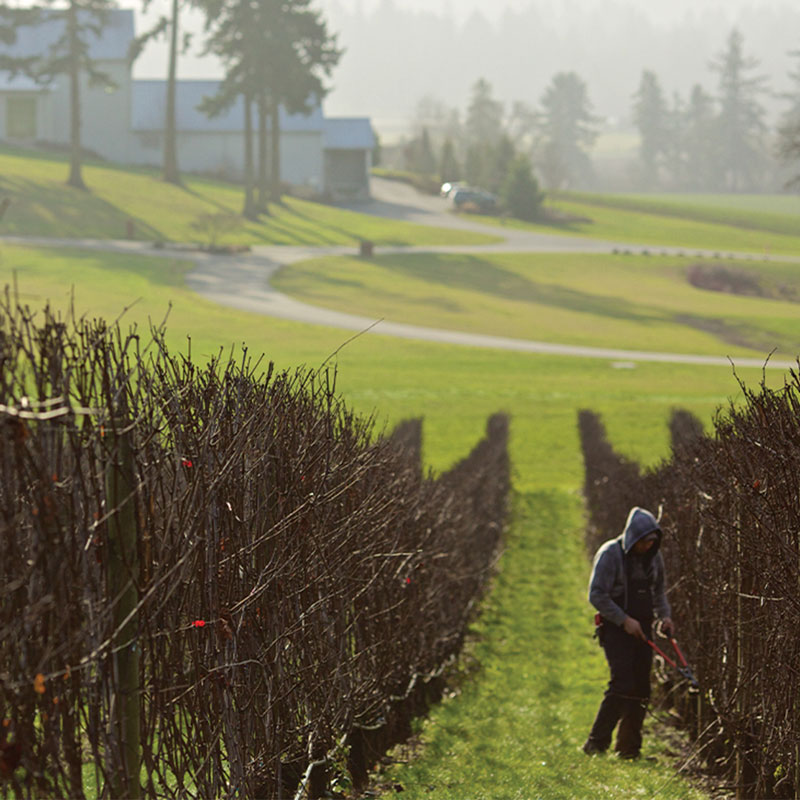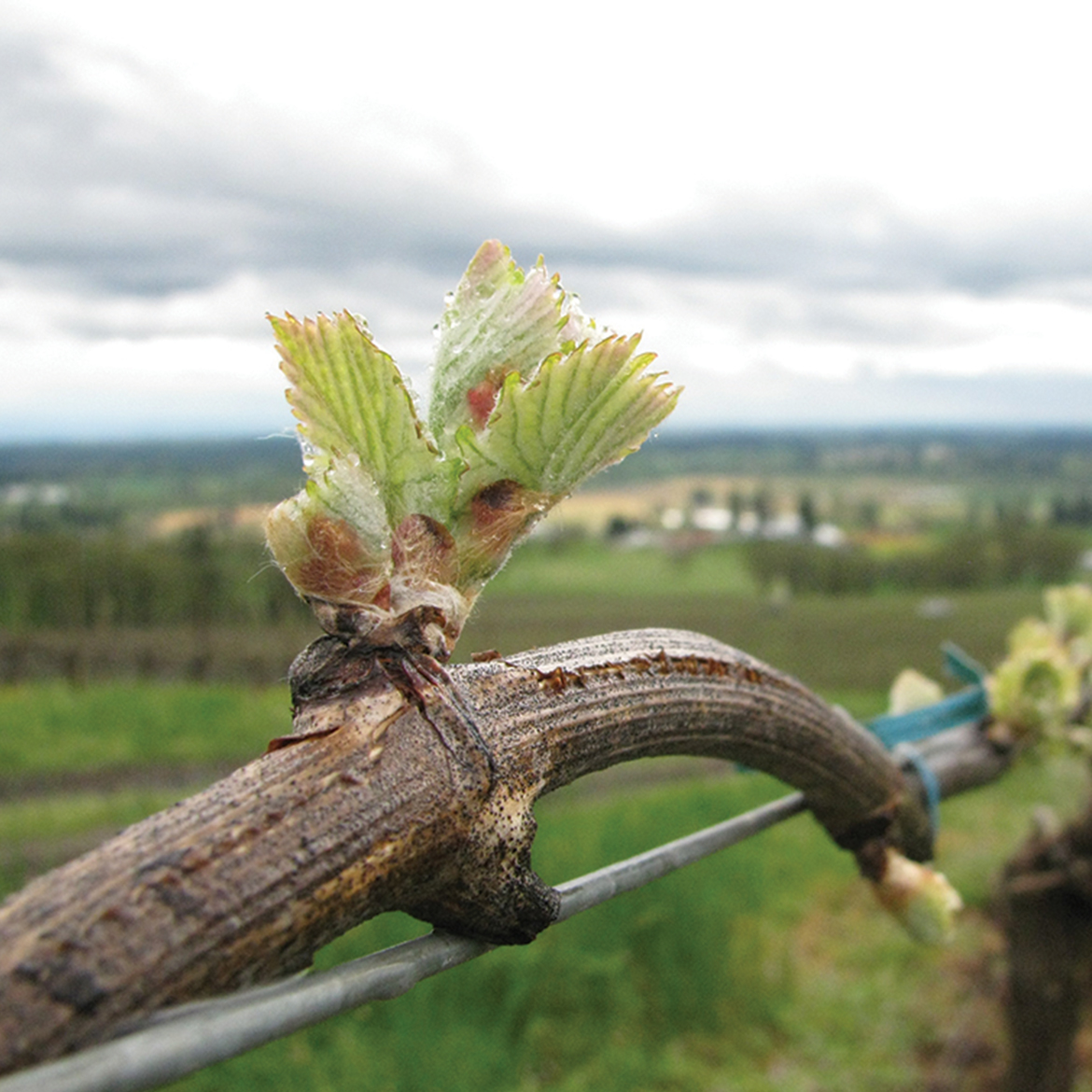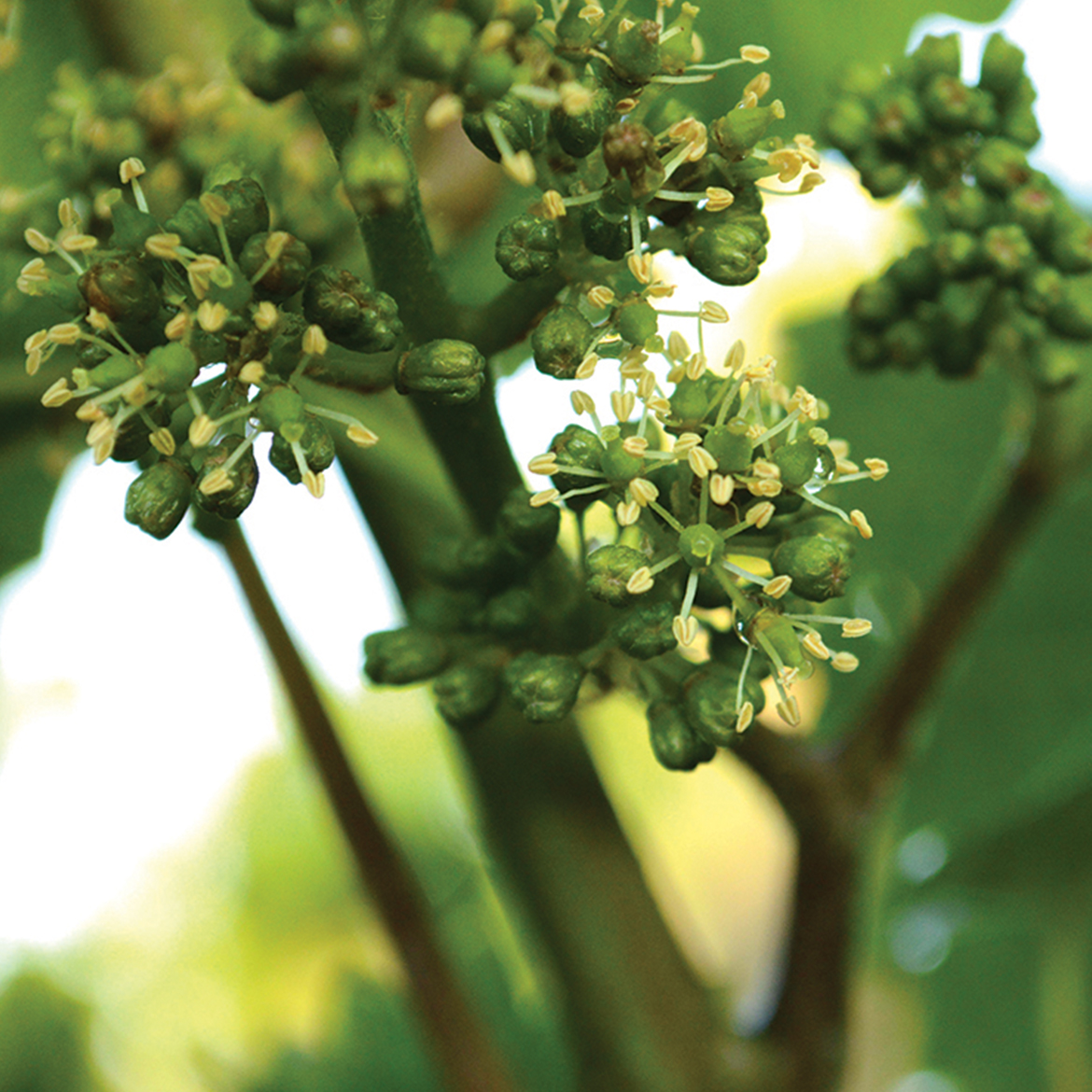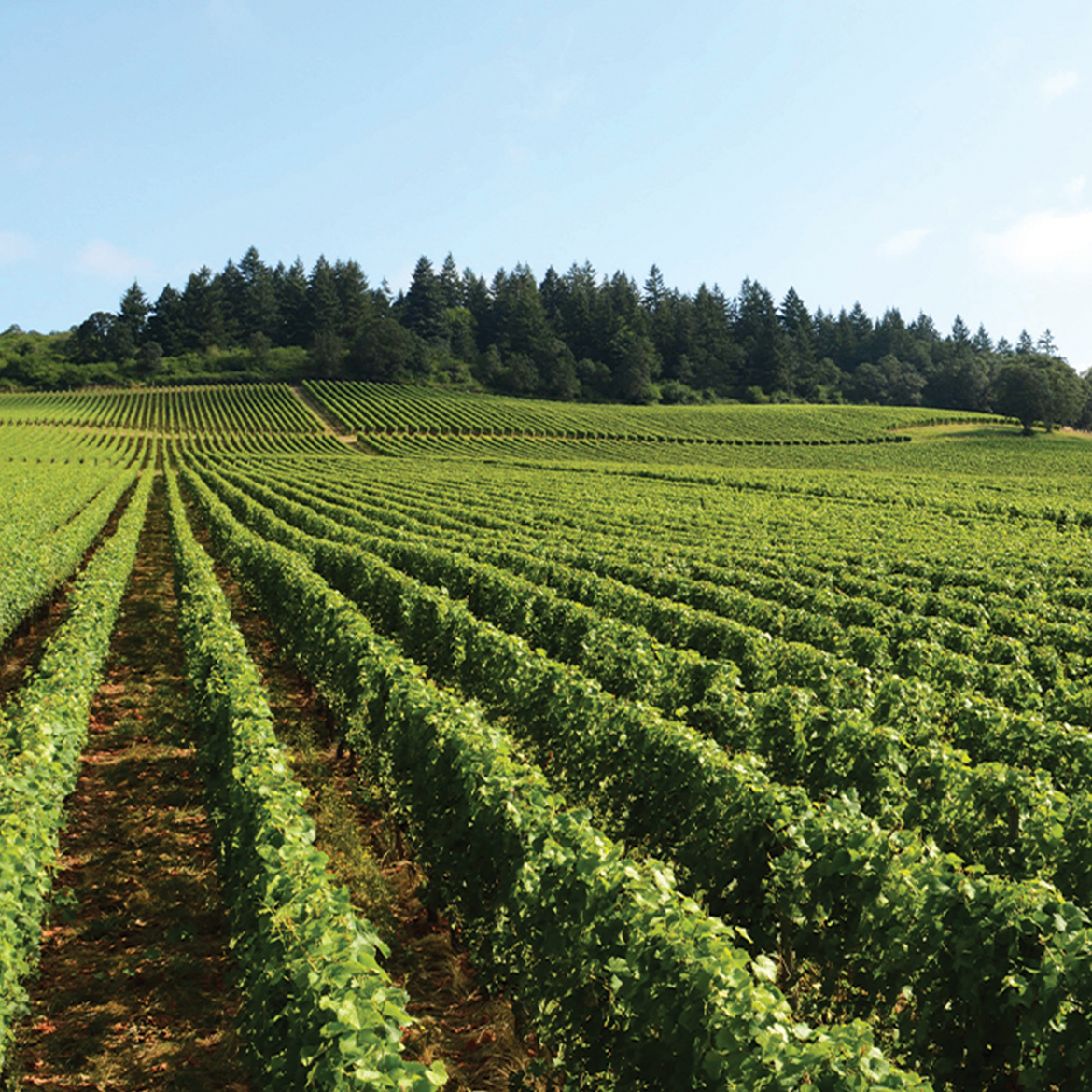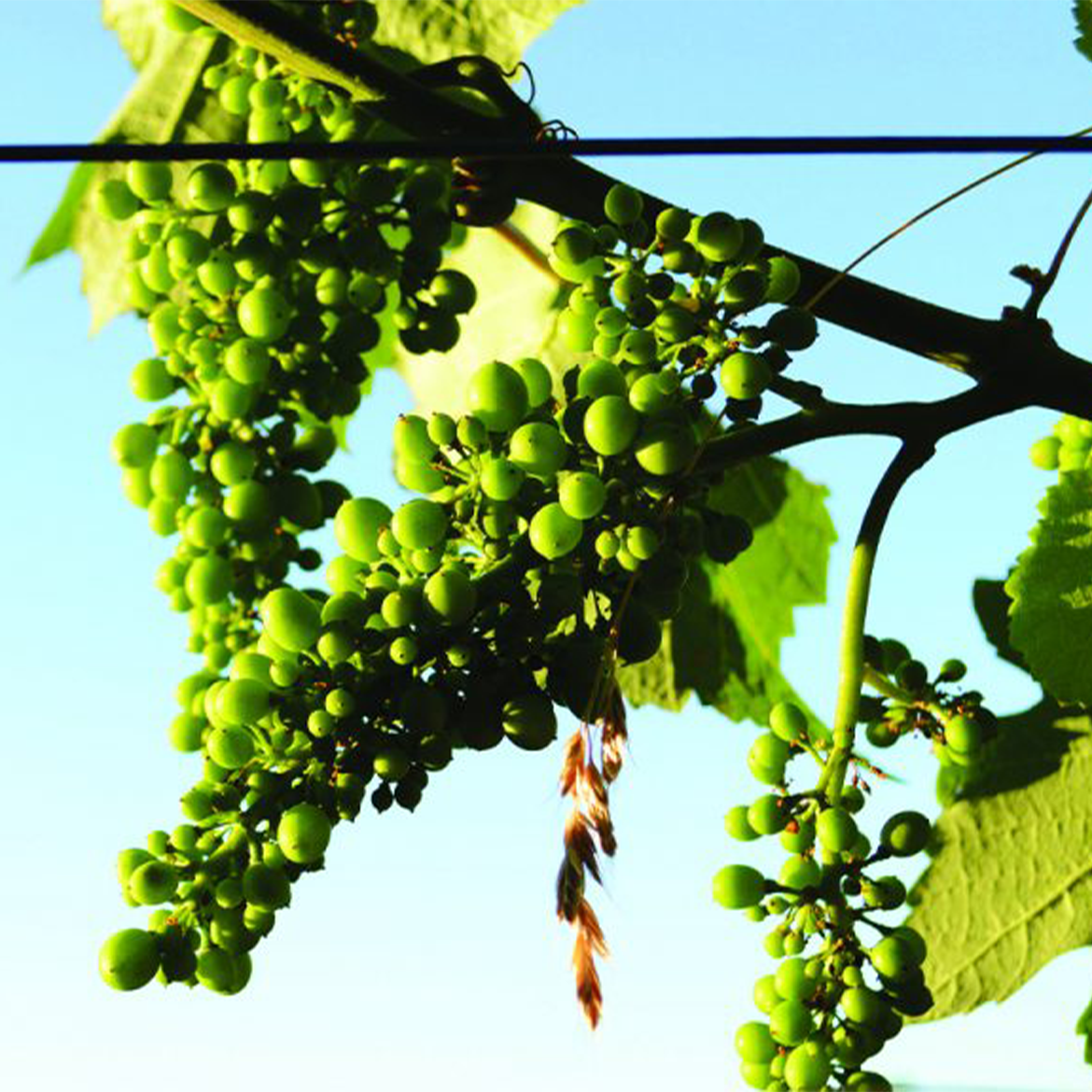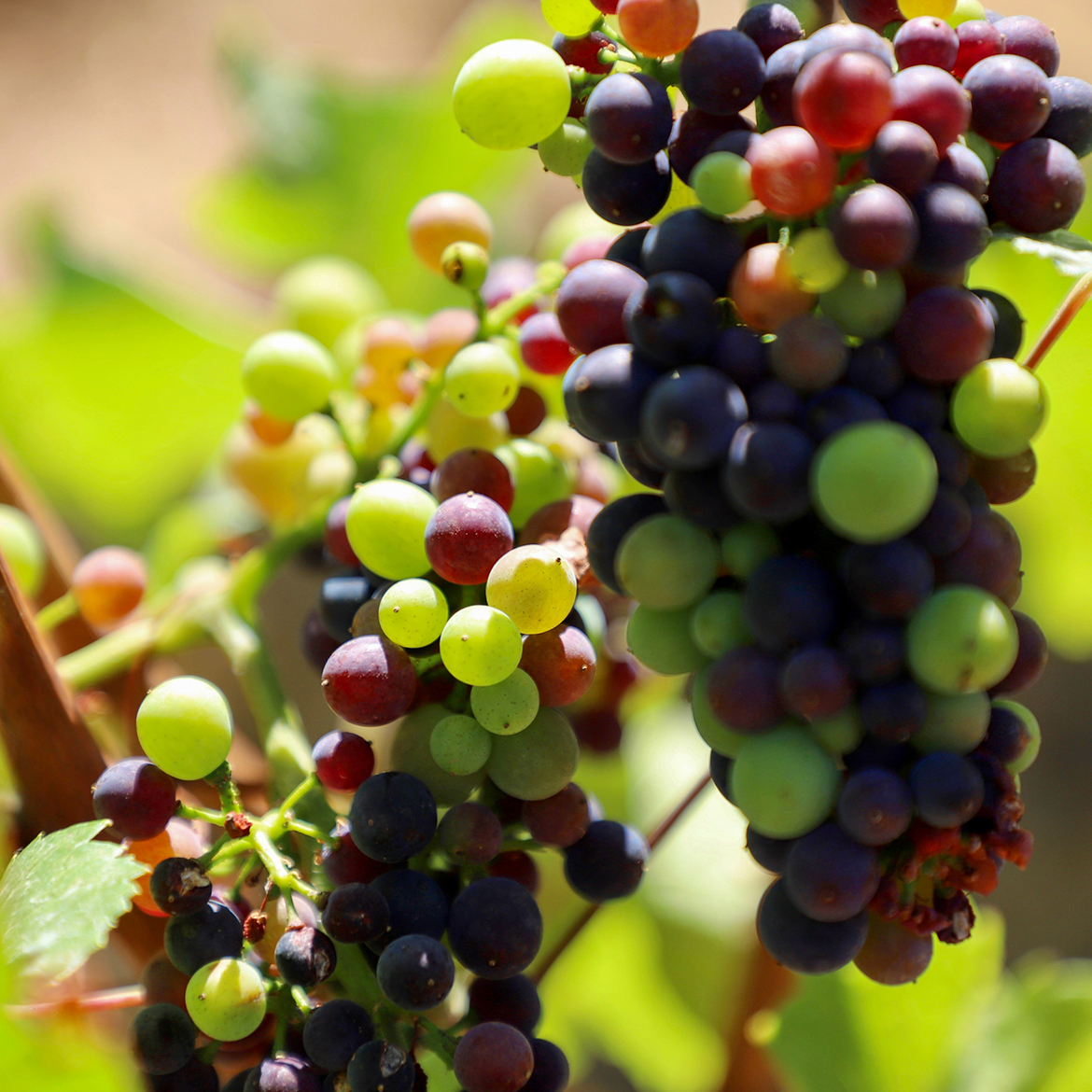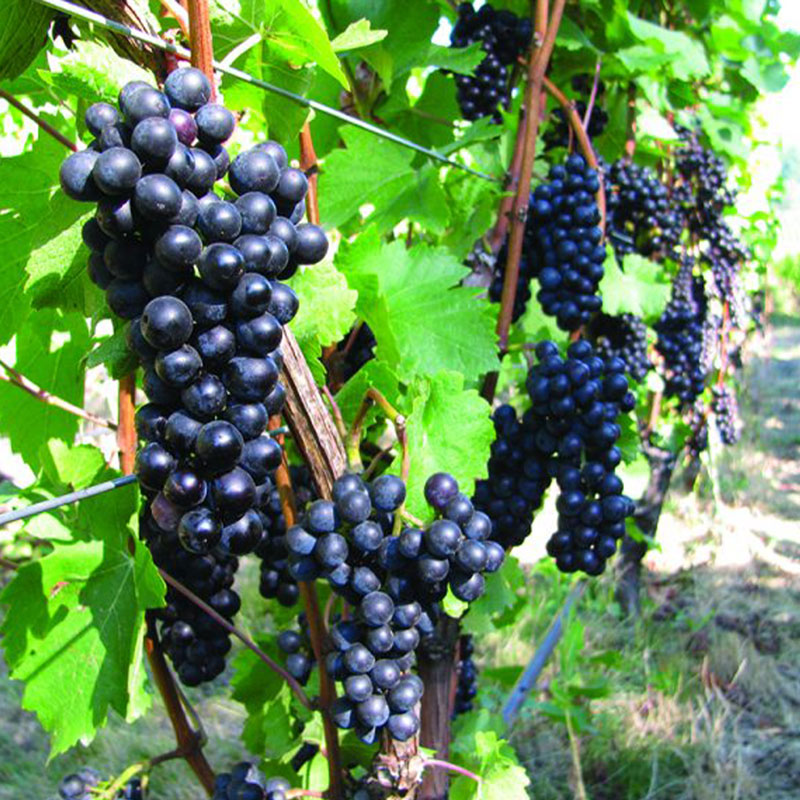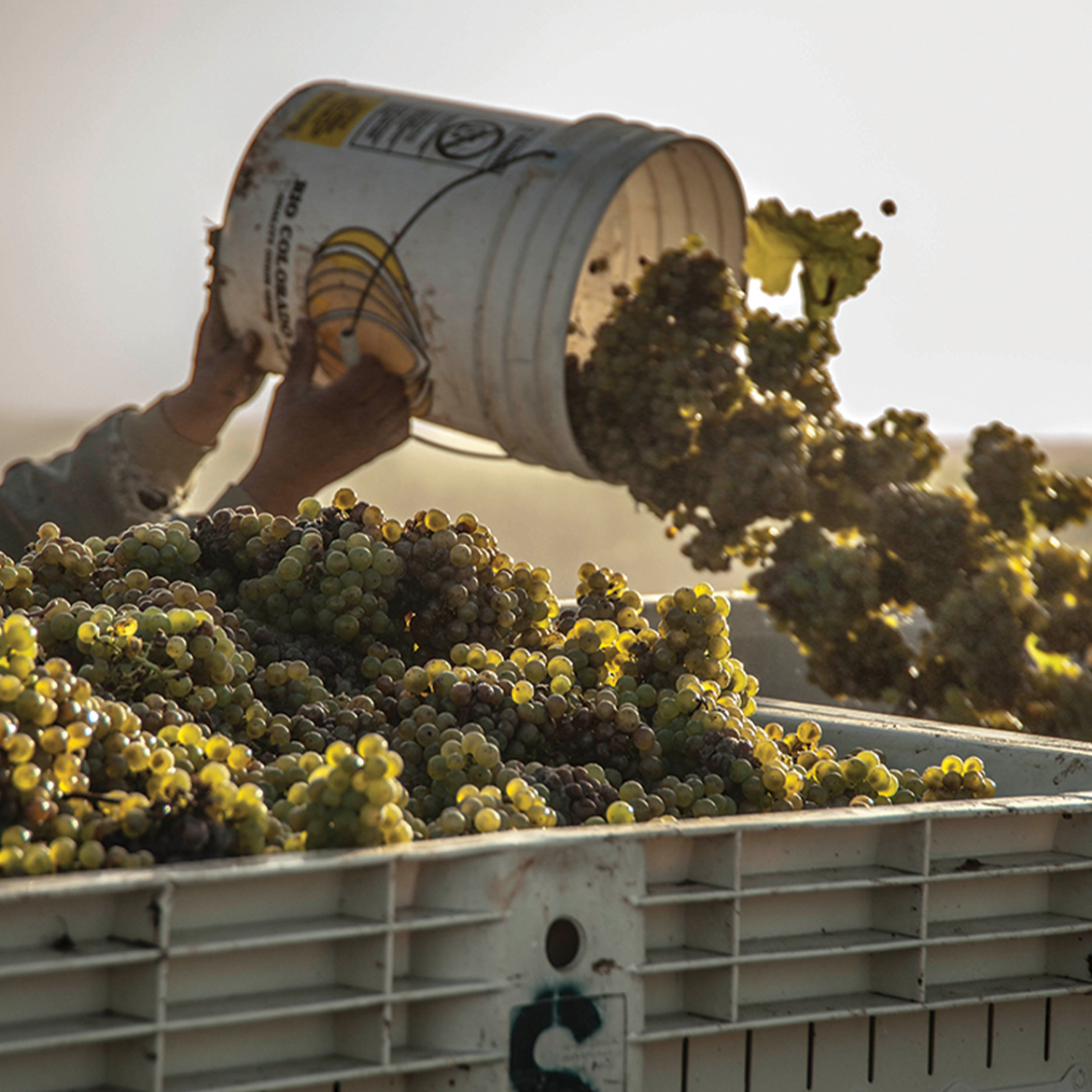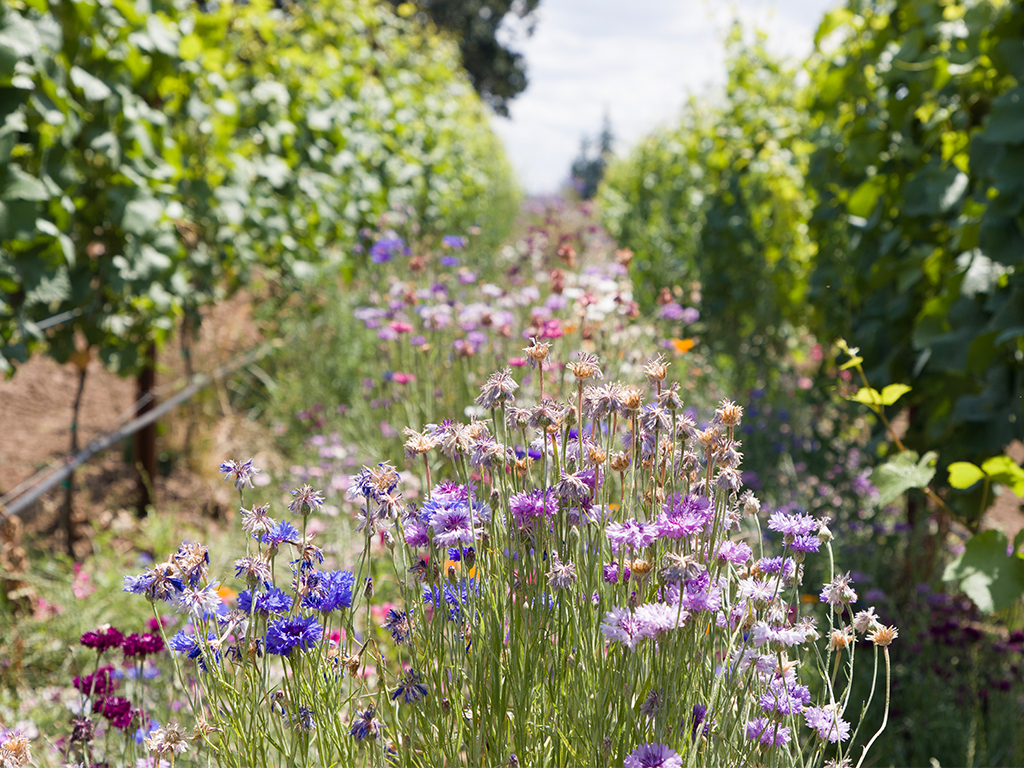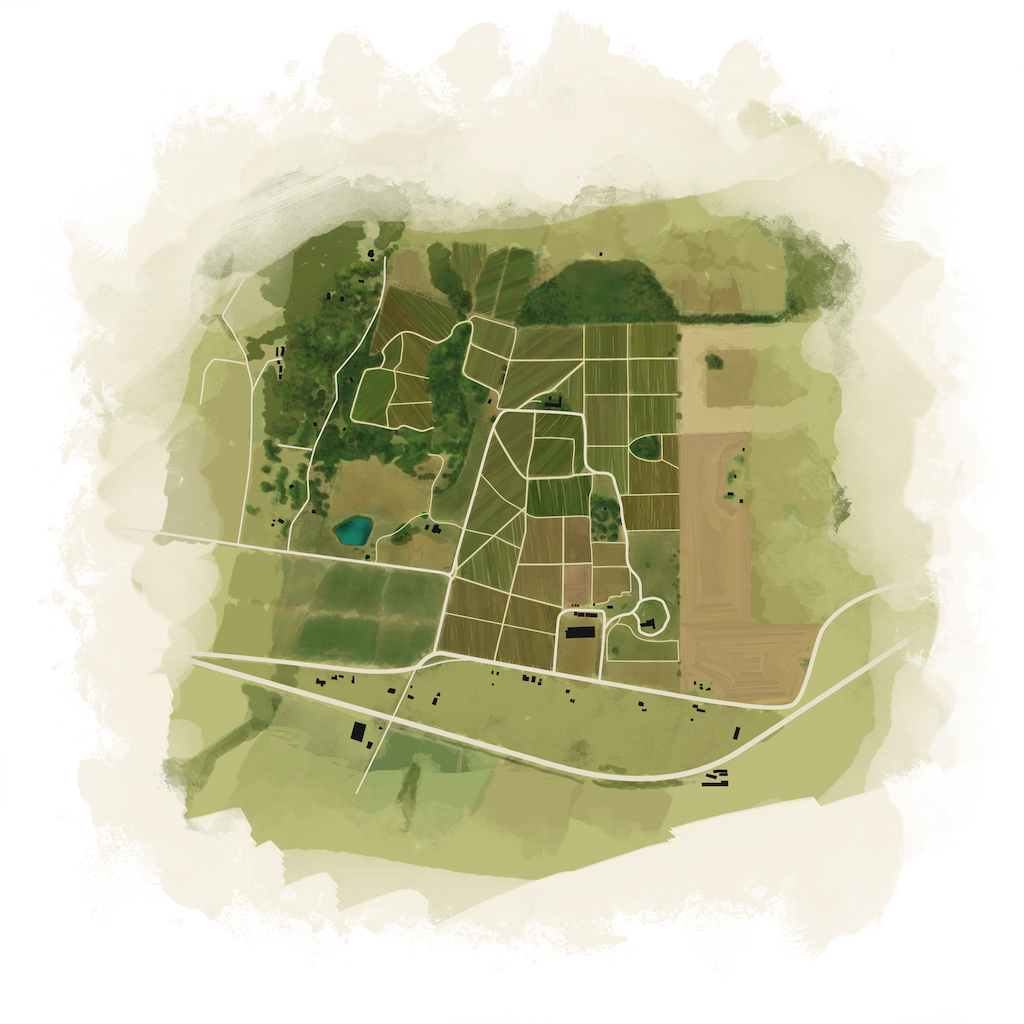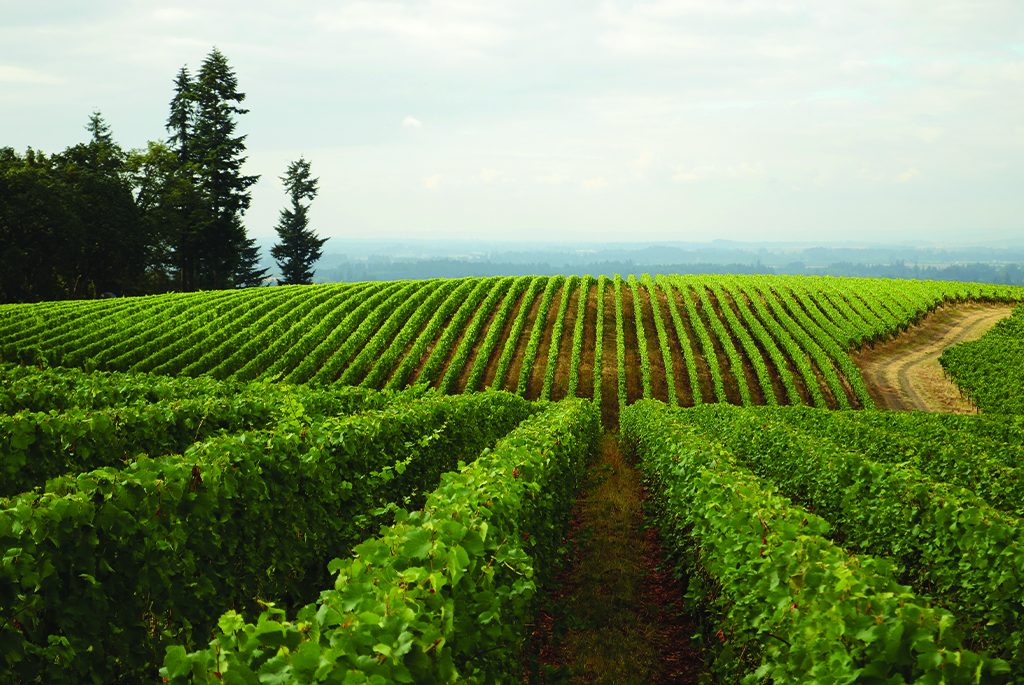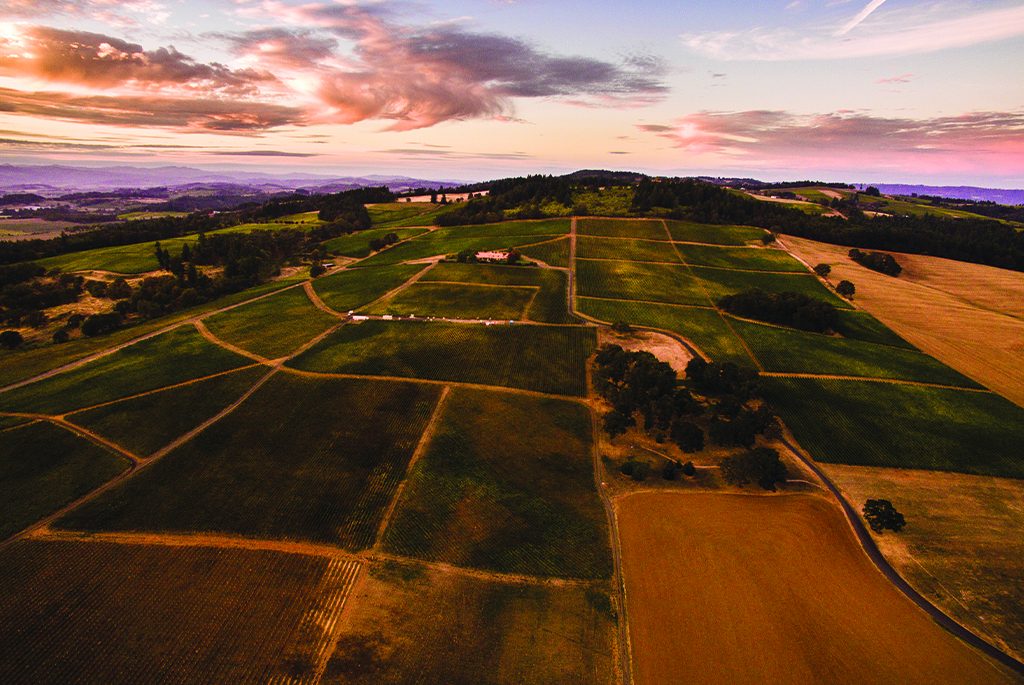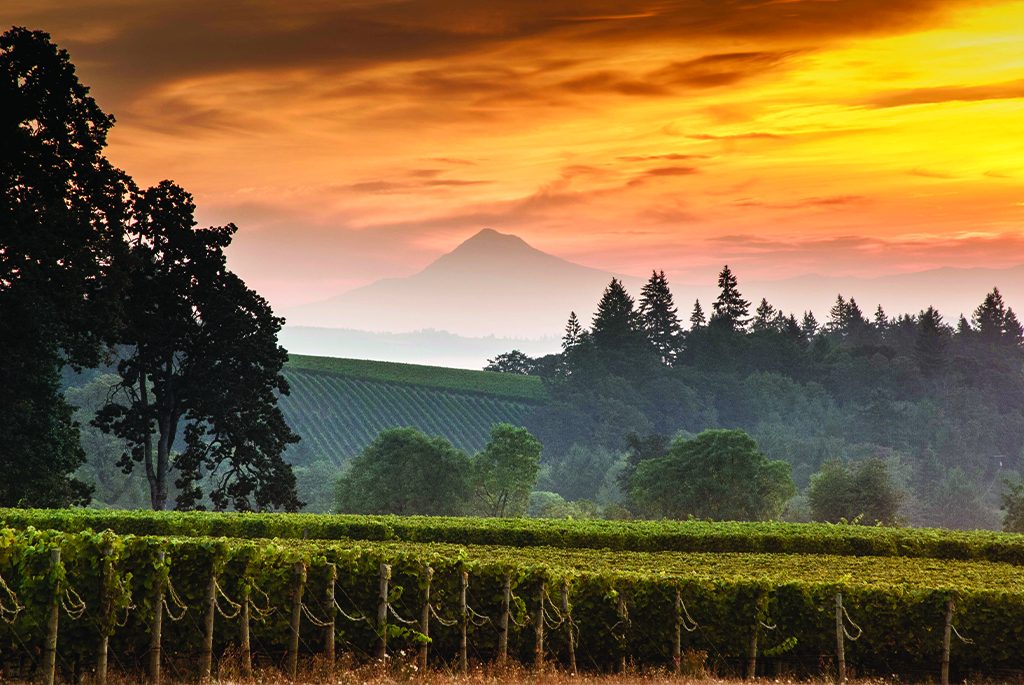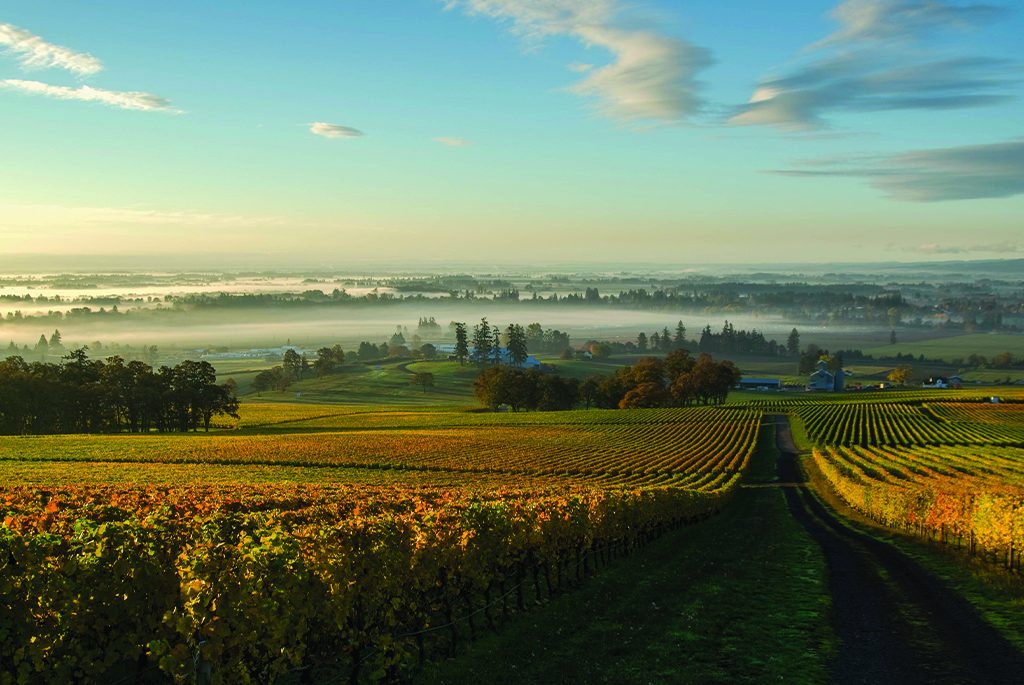our vineyard
Cultivating an Enduring Legacy
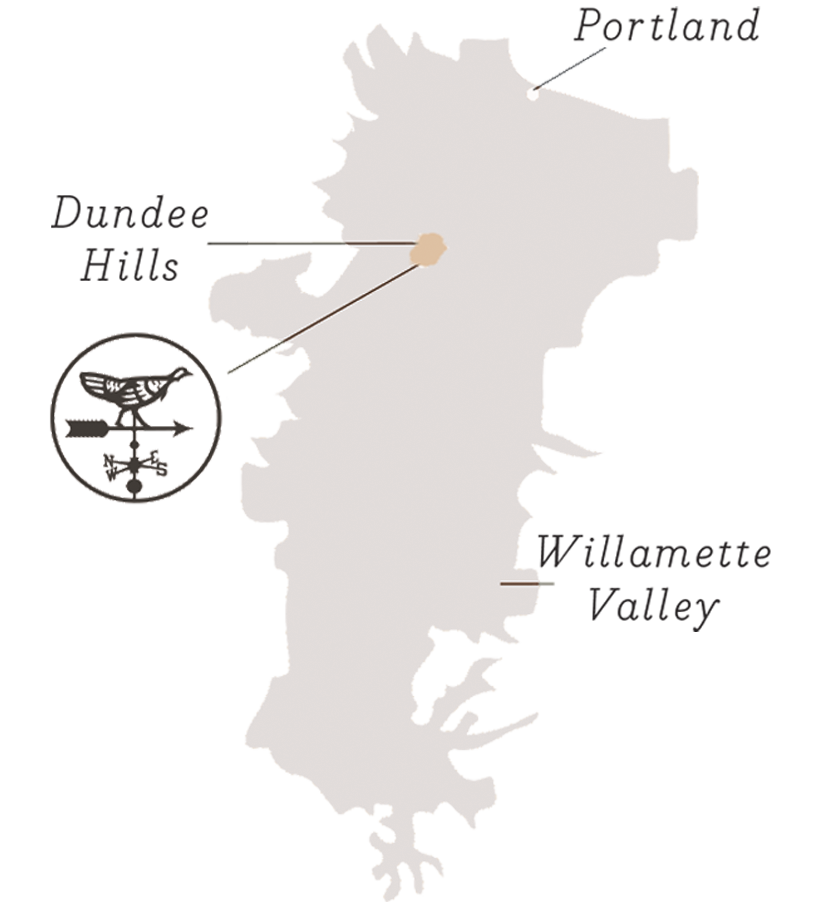
Our vineyard is the largest contiguous vineyard in Oregon’s Dundee Hills. The property spans 400 acres, with 225 acres dedicated to growing vines at elevations ranging from 210 to 650 feet. The surrounding mountain ranges buffer the vineyard, creating a warmer microclimate that ensures consistent ripening.
These south-facing, tightly-spaced vines are planted to Jory, the fertile and well-drained red soil that has come to define the Dundee Hills.
109 Sections, 10 Varieties
Our vineyard is divided into 109 meticulously farmed sections and has 10 planted varieties:
- Pinot Noir
- 153.23 acres
- Chardonnay
- 62.37 acres
- Syrah
- 1.98 acres
- Tempranillo
- 1.8 acres
- Riesling
- 1.51 acres
- Pinot Blanc
- 1.4 acres
- Gamay Noir
- 1.01 acres
- Pinot Meunier
- 1 acre
- Aligoté
- .97 acres
- Viognier
- .13 acres
Our vineyard is most known for Pinot Noir and Chardonnay. Pinot Noir clones include:
- Pommard
- 35.44 acres
- Clone 115
- 26.98 acres
- Clone 777
- 24.93 acres
- Wädenswil
- 17.91 acres
- Clone 667
- 15.76 acres
- Field Blend
- 4.99 acres
- Clone 114
- 4.41 acres
- True Clone 828
- 4.36 acre
- Clone 943
- 3.52 acres
- Calera
- 2.97 acres
- Martini
- 2.53 acres
- Swan
- 2.49 acres
- Mt. Eden
- 2.22 acres
- Jackson
- 1.93 acres
- Clone 117
- 1.4 acres
- Clone 32
- 1.39 acres
We focus on the following Dijon clones for Chardonnay:
- Clone 76
- 20.82 acres
- Clone 95
- 20.04 acres
- Clone 548
- 13.23 acres
- Clone 96
- 4.34 acres
- Clone 41
- 3.94 acres
Sustainable Farming & Innovation
We pride ourselves on running sustainable vineyards through a combination of responsible farming practices, innovative techniques, and cutting-edge scientific research. This approach helps us to continuously elevate the quality of the fruit we produce.
Vineyard Sustainability
Our sustainable vineyard is certified Low Input Viticulture and Enology (LIVE), which is the Northwest’s leading sustainability certification for vineyard farms. We collect winter runoff into a reservoir, which we use to irrigate when needed. All water needed for our fine gardens is sourced from these ponds. All winery waste is composted on-site and reused in the vineyards.
Innovative Techniques
Our state-of-the-art viticultural practices include mechanical “herbicide free” weeding systems, advanced recirculation, solar powered bird deterrent systems, and advanced weather stations to deliver actual vine sensory data.
Scientific Research
In addition to collaborating with leading viticultural researchers from Oregon State University, we’re conducting our own long-term experiments to further discover the vineyard’s full potential and provide thought leadership to the industry.
Pest Control
Our approach is to work with nature instead of fighting it. By fostering a habitat that supports a pests’ natural predators, we encourage the ecosystem that keeps them in check. We planted multiple acres of native perennial wildflowers that maintain the vineyard’s natural balance.
A Year In The Vineyard
